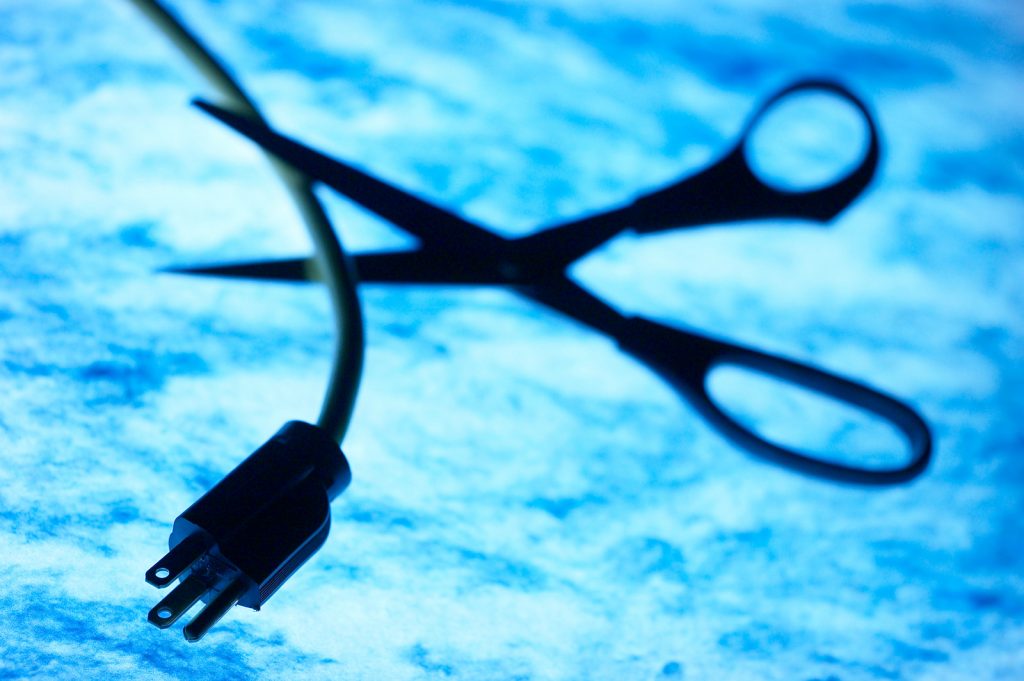Thankfully, power outages covering large areas are rare in the UK but recent instances, such as the large power outage in August 2019 that left 1 million people without electricity can be dangerous for those affected. With the ever increasing use of electricity in the country, in the future power cuts may not be so rare.
Be prepared for a power cut with these supplies:
- A light source
- Emergency radio
- Backup power pack
- Something to heat up water
- Tinned food or ready meals
- Prep for sanitation
- Hand warmers
- Stock up the first aid kit

What is a power cut?
A power cut is an interruption of electricity supply to an area. It can be either planned, in which case you will be notified prior; or unplanned outages where causes such as severe winds, lightning and underground water can affect the supply. Power cuts can be as short as a couple of seconds to some that last for days.
Power cut checker
In a genuine power cut, the energy distributors manage the electricity network and it is them you should contact, not your energy supplier. Go on to the energy network website and find out who your local distributor is. You just need to enter your postcode. You can also call them on 105.
First check in your home
If the lights go out, first check if it’s only your home, or is it affecting everyone. Check whether the street lights are on or if a neighbour has power. If it’s something at home, check the fuse box to see if any switches have been tripped. Still no power? Call a qualified electrician to get it fixed.
If you want a home cover plan that also covers electrics, check out Hometree on the link below
One thing to note, check with a couple of neighbours, as in the UK, the electricity network is built in such as way that different houses, even in the same street, can receive their power from different electricity cables. So if there is a fault with one cable, not everyone’s power goes off.
Essential items you need in a power cut
Because we rely on electricity so much, it is always better to prepare beforehand so here we look at the essential items you need to have in a power cut.
- A light source
To be able to find the way around your house without hurting yourself or breaking anything. Most people’s instincts would be to go with candles or tea lights and this is perfectly workable. Just make sure you also buy some candle stands for them as well as matches or lighters to go with them.
But if you have kids, do you really want a dozen candles all around the house? It would be better to focus on other sources of light such as flashlights which are safer. Go for multi directional lights which can light up an entire room. Also keep plenty of batteries to go with them.
Head torches are a great idea so you can move around the house and keep both hands free. Glow sticks could also be a part of your emergency lighting options, as having no flame, are safe to use in any emergency situation in any room.
2. Keep an emergency battery powered radio
If you are without power, having access to critical weather and news updates will be essential. Also, as they are radios, they can provide morale boosting music to keep you going. Look for emergency radios that have both replaceable batteries and also a rechargeable battery compartment which can be wound up with a crank. Some also have solar panels on them to recharge.
3. Backup power pack
Keeping a high capacity portable power pack will come in very handy for charging mobile phones and the many electrical devices that use USB cables. Make sure it stays almost full as some can take a few hours to reach full charge.
4. Something to heat up water
Mains water should be fine to drink in a power cut, but if you need hot water, which is always a good idea, you can use the gas hob to heat it up. If you don’t have gas in the property, you should invest in a camping stove which is enough to boil water to sterilise it, or cook some soup or pasta. Remember to buy extra gas canisters that go with it. Also have a large capacity thermos flask to store hot water in. A hot water bottle will come in handy too.
5. Have a stock of tinned food or ready meals
If you don’t have mains gas, you will need something that is quick and easy to cook with a camping stove, so keep your cupboard stocked up with tinned food. Having a variety of foods will help give you the right nutrition mix. Even better is to stock up with foods that don’t need to be cooked at all.
6. Prep for sanitation
Stock up on hand sanitizers so you don’t need to wash your hands with cold water all the time (the boiler also needs electricity to work). Baby wet wipes are good for wiping your face and after you have been to the toilet.
7. Hand warmers or pocket warmers
If you lose power in the middle of winter, your house will get cold really quickly. So keep individual hand warmers for every member of your household which can provide heat for up to 24 hours.
8. Stock up the first aid kit
Check your first aid kit and make sure it has all the main items such as dressings, disinfectant, gauze, bandages, ointments and items to use in an emergency. There are many hazards in the dark and having this kit will be an essential item.
How to report a power cut
There are a couple of different ways to report a power cut. Don’t assume your electricity network operator is already aware that your property has no incoming power. You can phone them on the general number 105 and they will give you the correct number.
Other ways to report a power cut is on the company’s website, or you can Tweet them. You should also be able to text them. It is a good idea to find and keep emergency numbers handy beforehand, maybe near the electricity meter.
Priority services during a power cut
For people who rely on medical equipment powered by mains electricity, it is important to contact your electricity distributor and also your energy supplier beforehand to ask to be put onto their priority services register. There is usually an online form you can fill in to let them know.
Also, talk to your doctor about a back up plan in case of a prolonged power cut. Medical equipment running on mains electricity should also have a battery back-up. If not, speak to the manufacturer about solutions to this in the event of a power outage.
What to do in a power cut:
- keep emergency telephone numbers nearby like on the electricity meter.
- keep phones well charged beforehand.
- Have a corded plug-in phone as a spare as cordless phones won’t work
- Remember to switch off or unplug electrical appliances. During power cuts there can be electrical surges in the network which can damage appliances. Just keep one light switch on in the house to let you know when the power comes back.
- Try not to open the fridge and freezer doors too often. This will help keep the food fresher for longer.
What compensation do you get for a power cut?
You may be able to get compensation for both planned and unplanned power cuts but this depends on what caused the power cut and how long it lasted.
You can get between £30 and £70 depending on what caused the power cut, how much notice you were given and how long it takes for the power cut to be fixed. Citizen’s Advice has more information on this. Click here to go to their website.
Power cut advice for businesses
Your business might have a power cut due to severe weather, a fault on the network, or theft and damage caused by third parties. To ensure your business is prepared, you can use a back up power supply (UPS) that provides a few minutes of emergency battery back-up. You can also rent or buy a generator to help you carry out your daily business.
Make sure to save or backup your work regularly on your computer or laptop, and keep laptops charged. Try to purchase electronic equipment that has memory stores to recover data.
*The information in this article should be used for general guidance only and not as financial or health advice. Full details are on the link in the footer to our disclaimer page. Always discuss your requirements with a competent and suitably qualified professional before undertaking any work.
Affiliate disclosure
Heatology.co are participants in a variety of affiliate schemes which help fund and run this website, visitors who follow our links and purchase a product may earn Heatology.co a commission. The money we make from affiliate marketing costs you nothing but keeps us online, so thank you for your continued support!
